Study in Singapore
Why Study in Singapore
In the heart of Singapore’s bustling metropolis lies a tapestry of educational wonders, where young minds find their greatest potential. Here, under the city’s gleaming skyline, students embark on transformative journeys marked by academic brilliance and cultural enrichment.
In this melting pot of cultures, students don’t merely study; they immerse themselves in a vibrant mosaic of ideas and perspectives. From cutting-edge research that sparks innovation to a strong emphasis on entrepreneurship, each lesson is a brushstroke, crafting future leaders. This city-state offers not just education but an odyssey of intellectual growth and global connectivity.
Singapore Universities Features
Global Recognition: Singaporean universities consistently rank high in global rankings, ensuring degrees are recognized worldwide.
Multicultural Environment: Singapore’s diverse population fosters a rich cultural experience, promoting global understanding and collaboration.
English as Medium of Instruction: English is the primary language of instruction, making it accessible for international students and ensuring smooth communication.
Strong Emphasis on Research: Singaporean universities focus on cutting-edge research across various disciplines, encouraging innovation and academic excellence.
Internationally Renowned Faculty: Many universities in Singapore boast a faculty of internationally recognized scholars and experts in their respective fields.
Education Cost
1 Years Degree Course
Total Expenses * - 18 lakhs
Part Time Earnings - N.A
Net Education cost - 18 lakhs
* (Education, visa and accommodation Includes)

Popular Universities

National University of Singapore (NUS)
Global leader in research, extensive range of programs, strong emphasis on innovation and entrepreneurship.
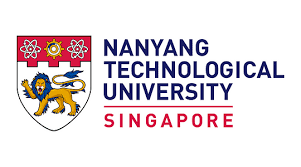
Nanyang Technological University (NTU)
Cutting-edge research facilities, renowned for engineering and technology programs, strong focus on sustainability.

Singapore Management University (SMU)
Top business school, interactive pedagogy, emphasis on real-world application through internships and projects.
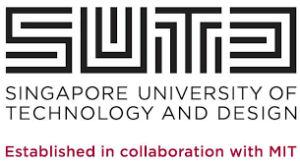
Singapore University of Technology and Design (SUTD)
Interdisciplinary approach, focus on design thinking, strong ties with industry for practical experience.
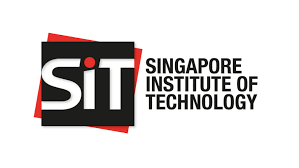
Singapore Institute of Technology (SIT)
Industry-oriented programs, collaboration with industry partners, emphasis on applied learning and internships.

Management Development Institute of Singapore (MDIS)
Wide range of programs, emphasis on skill development, flexible study options including part-time and online courses.
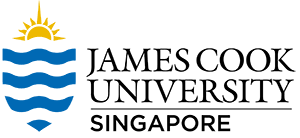
James Cook University, Singapore
Global recognition, focus on tropical research, diverse international student body, strong emphasis on student support services.
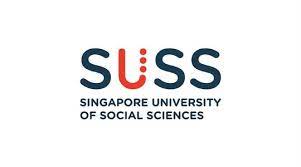
Singapore University of Social Sciences (SUSS)
Lifelong learning approach, emphasis on social sciences, flexible study options for working professionals, strong community engagement initiatives.

Trending Courses
- Business Management
- Healthcare and Medicine
- Hospitality and Tourism Management
- Information Technology and Computer Science
- Biotechnology and Life Sciences
Study in Singapore FAQs
To study in Singapore universities, students typically need to provide academic transcripts, demonstrate English proficiency through exams like IELTS or TOEFL, secure an acceptance offer from a Singaporean university, apply for a Student Pass (visa), show proof of financial means, obtain health insurance coverage, and submit passport-size photos. Additional requirements such as recommendation letters or a statement of purpose might be needed for specific programs. It’s essential to check the official university websites and immigration authorities for the most accurate and updated information regarding specific requirements.
In Singapore, fields like Information Technology, Healthcare, Business, Engineering, Biotechnology, Environmental Studies, and Hospitality are currently in high demand. Information Technology courses prepare students for the tech industry, while healthcare-related programs address the needs of an aging population. Business and Management degrees are valuable for Singapore’s thriving business sector, and Engineering fields are crucial for infrastructure projects. Biotechnology and Environmental Studies cater to the country’s focus on research and sustainability. Additionally, Hospitality and Tourism Management programs benefit from Singapore’s growing tourism industry. Choosing a course depends on individual interests and career aspirations, with various fields offering promising prospects in Singapore’s job market.
The cost of studying in Singapore varies based on the university, level of study, and chosen course. Generally, tuition fees for international students range from SGD 18,000 to SGD 45,000 per year for undergraduate programs, and from SGD 18,000 to SGD 40,000 per year for postgraduate programs. Business and medical-related courses tend to be at the higher end of this range.
Living expenses, including accommodation, food, transport, and other personal expenses, are estimated to be around SGD 700 to SGD 2,000 per month, depending on the student’s lifestyle and accommodation choices.
Additionally, students need to budget for health insurance, which can cost around SGD 500 to SGD 1,500 per year, and other miscellaneous expenses.
It’s important to note that these figures are approximate and can vary between universities and individual circumstances.
1. University Hostels: Managed by universities, these provide convenient on-campus living, fostering a sense of community among students.
2. Private Hostels/Residences:Privately-run accommodations with facilities similar to university hostels, offering a range of amenities.
3. Shared Apartments: Students can share private apartments, splitting rent and utilities, providing independence and privacy.
4. Homestays: Living with a local family offers a cultural experience, providing a supportive and nurturing environment.
5. Private Rentals: Individual apartments or condominiums can be rented privately, offering flexibility and independence.
6. Student Hostels:Budget-friendly hostels in various parts of Singapore, suitable for short-term stays or until permanent accommodation is found.
7. Serviced Apartments: Furnished apartments with amenities like housekeeping, catering to students looking for a hassle-free living arrangement.
8. Off-Campus Housing: Students can explore off-campus housing options, renting rooms or flats in residential neighborhoods.
Testimonial



